Search Results
Showing results 1 to 15 of 15
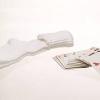
Don't Be Nerve-ous
Source Institutions
In this activity, learners discover a brain process called habituation.

Michelle O (formerly Vanna)
Source Institutions
We don't normally view people upside down and so our brains aren't accustomed to it.
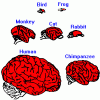
Jump to It!
Source Institutions
This is a quick and simple demonstration about reflexes (second activity on the page).

Sock It To Me!
Source Institutions
In this activity (7th activity on the page), learners use their sense of touch to identify mystery objects hidden in socks.
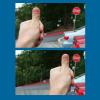
Experiencing Parallax With Your Thumb
Source Institutions
In this activity, learners investigate parallax, a method used to measure distances to stars and planets in the solar system.
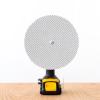
Squirming Palm
Source Institutions
Known as the waterfall effect, this activity demonstrates adaptation in our visual system.
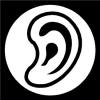
Mystery Noises
Source Institutions
In this game (4th activity on the page) about hearing, learners test their ability to identify various sounds without looking.
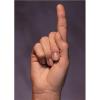
Shifting Backgrounds, Shifting Images
Source Institutions
In this quick activity/demonstration (5th on the page), learners explore depth perception.
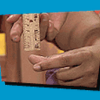
Reaction Time
Source Institutions
In this activity, learners conduct an experiment to test how fast they can react. Learners try to catch a piece of paper with a ruler printed on it (or a ruler) as quickly as they can.
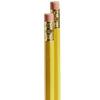
Depth Perception
Source Institutions
In this easy demonstration (3rd on the page), learners explore depth perception by conducting a test with two pencils.
Why Are Two Eyes Better Than One?
Source Institutions
In this activity, learners explore how their depth perception would be affected if they only had one eye. Learners work in pairs and attempt to drop a penny in a cup with one eye covered.
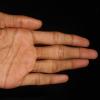
Head, Shoulder, Knees and Toes...and Hands, Fingers and Back
Source Institutions
Are fingers the only place on the body where we use our sense of touch? In this activity (6th activity on the page), learners test the touch sensitivity of different parts of the body.

In the Middle
Source Institutions
In this game-like activity (5th activity on the page), learners explore their auditory acuity as well as the importance of having two ears.
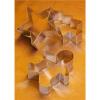
Active Touch
Source Institutions
In this activity (14th activity on the page) about the sense of touch, learners examine if it is easier or harder to identify an object if they move their hands over it.

A Penny Saved is a Penny Heard
Source Institutions
In this activity (11th activity on the page), learners use pennies to test their hearing acuity.
